Díaz-Canel in the National Assembly: It is time to move beyond diagnoses and move on to action
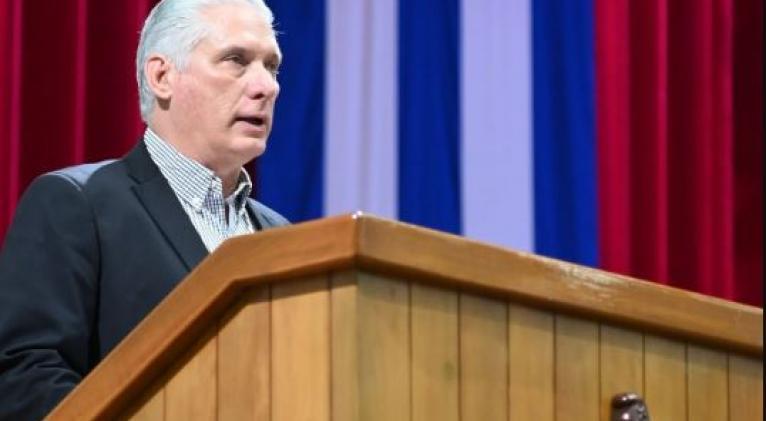
At the closing of the Third Period of the Tenth Legislature of the National Assembly, the Cuban president and first secretary of the Central Committee of the PCC, Miguel Díaz-Canel, highlighted this Friday the issues of high importance for the country that were addressed during these days of debate.
He Cuban leader stated that “it is now time to change what needs to be changed and advance on the path undertaken 65 years ago to emancipate ourselves by ourselves and with our own efforts, according to the Concept of Revolution that Fidel left us.”
Referring to the fact that some criticize the unanimous approval of almost all the agreements of the National Assembly, “a synthesis of the country that we are,” Díaz-Canel pointed out that they do not know that, behind these agreements, “there are long and intense days of work, debate and search for consensus based on the collective interest.”
“Cuba is not run by one person, not even a small group of people. It is a “dictatorship” that the enemies of the Revolution will never be able to understand: the dictatorship of the workers, the dictatorship of the people that we represent, those gathered here by popular decision. Therefore, what we discuss here is a guide and what we approve is law.
“We will never accept the masquerade of democracy that is displayed in the showcases of the Empire, where candidates are evaluated by the amount of money they can raise and, instead of proposing real changes to the great problems of their country, each one tries to defeat their adversary with disqualifications and insults.
“We also do not accept as a model the all-powerful Congress of the United States, where honest legislators, interested in serving their communities, are forced to legislate alongside authentic bandits, servants of lobbyists for weapons and other infamous businesses, like those who have maintained policies against Cuba for decades as if it were a matter of internal politics,” said the president.
He added that “if anything honors us as a nation, it is the integration of this Assembly, the genuinely Cuban character of each legislature, where overtime is not paid. The only reward in return is the real and practical possibility of being more useful to society and the recognition of the people we serve.”
In his speech before the deputies, Díaz-Canel said that “the intense legislative activity of these sessions confirms what I say.” In this regard, he highlighted that six laws of importance for society were approved and that they develop constitutional precepts, three of them present for the first time in the legal system of the nation.
“We are referring to the laws of Citizenship, Administrative Procedure and Transparency and Access to Public Information. The rich debates and contributions of the deputies in the analysis of each bill have strengthened them and forced them to make important changes in their content,” he said.
Referring to the most debated projects in this session, he mentioned those related to the status of people in the national territory, both Cuban and foreign citizens.
They are - he specified - "the Citizenship Law, the first to regulate this matter, with recognition of multi-citizenship and effective citizenship; the Migration Law, perhaps the most discussed, and the Immigration Law, which updates the regulations in force since 1976.
"These laws - the president emphasized - show the will to broaden and expand relations with all Cubans, with all those committed to their homeland, and confirm that Cuba is a safe and respectful place for all foreigners who decide to reside in the national territory."
He pointed out the fact that each of these regulations responds to a demand with an interest in the public good, such as the Administrative Procedure Law, "a transcendental change for the functioning of the Public Administration, which must become a brake on bureaucratic manifestations of officials," or the Transparency and Access to Public Information Law, "consistent with the fundamental principles of the socialist State of law.
In all cases,” he stressed, “the interests of national defense and security are preserved, as well as the integrity of the people,” and the intensity and dynamism of this process “demonstrate once again the purpose of complying with the legislative schedule approved by the Assembly and, with this, making each of the contents of the Magna Carta a reality.”
The Cuban president pointed out that “every day we face enormous obstacles to the dreams and projects of social justice, aware that it is our responsibility, as a socialist State, to challenge powerful dominant forces within and outside the social and national sphere,” according to another fundamental idea of the concept of Revolution.
Commenting that there are many, and from different perspectives, who describe the current moment as “the most difficult in the history of the Revolution” and that “there are even those who suggest that the revolutionary period is over,” Díaz-Canel acknowledged that “the moment is very difficult, without a doubt. The people say it and we, who work to alleviate the impact of these difficulties on everyone's daily lives, ratify it. But the Revolution lives and its enemies know it. That is why they harass and attack it.”
The Revolution - continued the Cuban president - “is being severely challenged to revolutionize itself and it is doing so. We are doing it together, as a team, because no other formula is possible.”
Díaz-Canel affirmed that the moment has always been difficult for revolutionaries, “but difficult does not mean insurmountable. That is written in the history of the last 65 years.”
He recalled that since the Revolution came to power, it has been permanently threatened, “the Island has been undermined by bandits who today would be called, rightly, terrorists,” its economy has been constantly under-supplied and sabotaged, its relations with Latin America have been broken by pressure from the Yankees, “who declared us their enemies under an avalanche of lies exalted by the fierce anti-communist propaganda of the Cold War.”
“What were Girón, the October Crisis, the plagues, the attacks, the bombs, the sabotage in the midst of such dramatic situations as Cyclone Flora and all the poverty inherited from the previous system?” asked the head of state.
“The moment is very difficult, but the history that precedes it is so instructive, so inspiring, so heroic, that it alone answers all the questions with the always challenging phrase with which the Army General taught us to face difficulties: ‘Yes, we can.’”


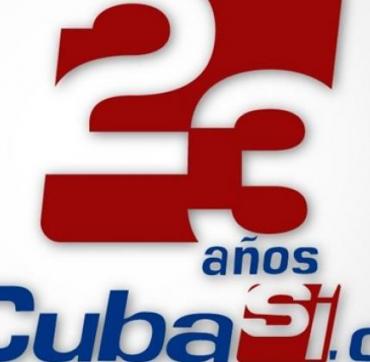




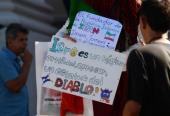
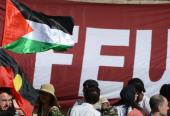
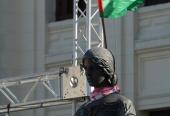

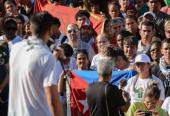


Add new comment